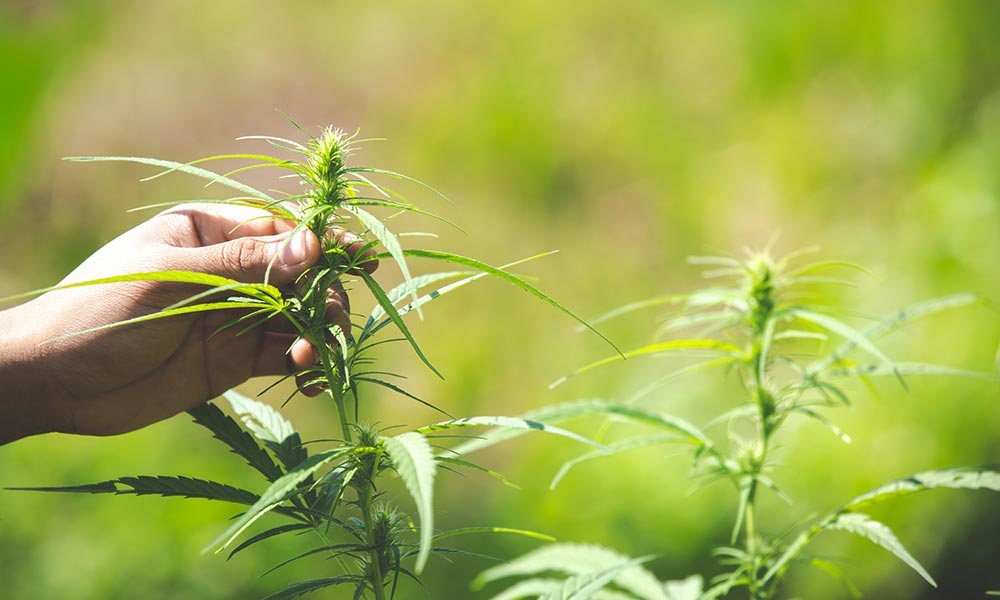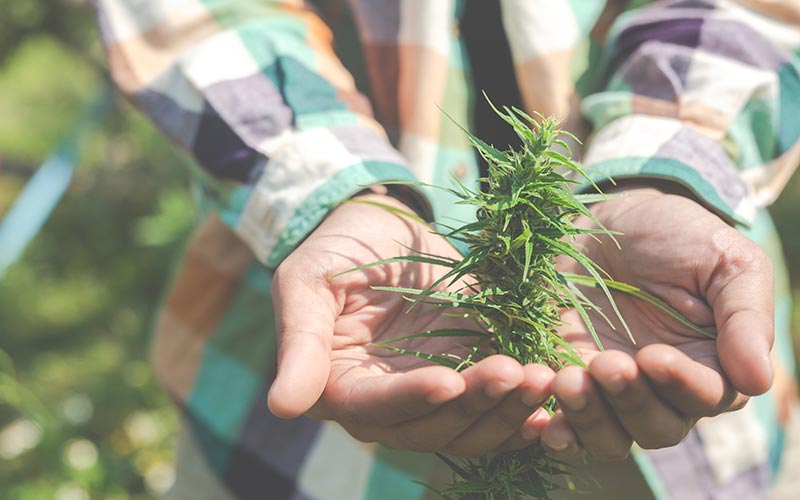
There is increasing use of hemp. Since the passing of the 2018 Farm Bill, the number of farmers and users has rapidly increased. There are currently thousands of hectares and retailers who cultivate hemp and sell hemp products. So, what makes hemp so popular? And are hemp plants the same as marijuana? This article offers an overview of hemp’s benefits, side effects, and legality.
What is Hemp?
Hemp is a cannabis sativa species with high levels of CBD and trace THC content. It’s non-psychoactive and normally used in various industrial and commercial products.
Hemp vs Marijuana
People often think that hemp is the same as marijuana and vice-versa. While those belonging to the cannabis family of plants are different. Marijuana is known to produce the psychoactive “high” feeling due to high levels of THC content than CBD.
On the other hemp, hemp is known for its high nutrient content and medical benefits of CBD content. Even though hemp plants usually have trace amounts of THC, it’s not usually high enough to produce strong psychoactive properties.
The key differences in CBD and THC content in these forms of cannabis plants are what makes them different. So, while hemp is legal federally in the United States, marijuana is still illegal.
How Hemp is Used
You can use hemp in several ways, depending on your personal needs. Historically, people used to grow industrial hemp as a source of fiber and not CBD content. But due to research studies and multiple health benefits of hemp extracts, people now use it for medicinal purposes.
Hemp is still a great source of fiber since it contains high amounts of eco-friendly organic fiber. Manufacturers normally use the outer, long fiber known as the bast fiber to make paper, rope, and other textile products. On the other hand, inner fibers, i.e., hurd or core fibers, are ideal for building materials or plastics.

Medically, hemp products are safe and ideal for long-term use. Those who use it to make textile products or non-edibles can rely on its eco-friendly nature. This is because it’s possible to reuse and recycle hemp-based products since they are biodegradable.
Identifying Factors for Hemp Plants
For a cannabis plant to be legally classified as hemp, it must contain 0.3% THC on the dry weight. Physically, hemp plants usually have the following characteristics:
- Tall and can grow up to 20 feet
- The plants tend to grow closer together
- Require minimal care and can grow in a wide range of conditions
- Skinnier leaves that are mostly concentrated at the top of the plant
- Little branching or leaves are found below the plant to enhance the growth of long stalks
Health Benefits of Hemp
Medically, you can use hemp plant extracts to manage a wide range of medical conditions and promote general wellness. Hemp oil is made from compressed hemp seeds that are extremely nutritious. It should be noted that hemp seeds and oil are rich in nutrients such as fiber, protein, and magnesium.
Besides that, they contain high amounts of omega-3 and omega-6 fatty acids. All these nutrients can help manage wellness and promote good health by reducing symptoms of:
- Cardiovascular disease
- Osteoporosis or bone density loss
- Skin conditions such as acne, dermatitis, and eczema
The high protein content in the seeds means that hemp seed milk is sometimes used as an alternative to cow or almond milk. This plant’s extracts contain high amounts of antioxidants which help to flush free damaging radicals from the body and minimize the chances of cell damage.
Additionally, the antioxidants may help reduce the risk of cancer thanks to compounds such as tocopherols, terpenes, and polyphenols. Manufacturers can also use hemp flour to make protein supplements. Even though the nutritional components are crucial in promoting wellness, hemp plants also have non-nutritive compounds that enhance good health.
They include CBD and THC compounds which have antioxidants, anti-inflammatory, neuroprotective, and anti-anxiety properties. Preliminary reports from research studies indicate that the CBD content in hemp can promote health benefits such as:
- Chronic pain by providing analgesic properties.
- Epilepsy and other seizure disorders by providing anti-seizure properties.
- Digestive issues, rheumatoid arthritis, multiple sclerosis, and cancer by providing antioxidant-rich and anti-inflammatory effects.
- Psychosis, anxiety, stress, post-traumatic stress disorder, and depression provide users with calming, anti-anxiety, and anti-depressant effects.
- Insomnia due to relaxing and sedative effects.
Dementia and Alzheimer’s disease due to the presence of neuroprotective properties. It’s worth noting that the CBD content in hemp plants makes the extracts ideal for protecting the brain cells. However, there is still the need for more research studies to determine the benefits of hemp plants fully.
Environmental Benefits of Hemp Plants
Generally, cultivating hemp is more environmentally friendly. Hemp is a versatile plant that grows more efficiently than many other crops. As the plants grow, they tend to create a dense canopy layer that usually prevents the sun from reaching competing weeds. This consequentially prevents the weeds from growing.
Additionally, hemp crops develop deep roots that help conserve the environment by preventing soil erosion and making it more compact. It’s worth noting that the same roots usually draw toxic elements such as harmful heavy metals from the soil and incorporate them into the plant’s harmless matter. As a result, they are effective in promoting land reclamation and decontaminating the soil.
Generally, hemp plants tend to grow very quickly. This makes them great in trapping carbon and absorbing more from the air. This is beneficial to the plant matter and helps absorb the toxic CO2 gas from the air. It’s been established that one hectare of industrial hemp crop can suck almost 15 tones of CO2 from the air.
Lastly, these plants can grow in a wide range of conditions. So, their environmental benefits aren’t specifically limited to certain regions. The versatile crops can yield almost 600% more textile fiber than flax and 250% more than cotton.
Side Effects of Hemp
Hemp is a generally safe plant, but this doesn’t eliminate the fact that it can still result in possible side effects. If you are going to consume hemp products, then it’s possible to experience negative effects such as:
- Diarrhea
- Throat irritation
- Nausea and vomiting
- Slow heart rate
- High blood pressure
Can Eating Hemp Cause a Person to Fail a Drug Test?
Well, this isn’t true. Industrial hemp doesn’t contain the psychoactive THC content usually screened in most drug tests. If there is THC content, the amount is usually less than 0.3%, which is undetected when screening for athletic performance or standard employment. To ensure that you buy safe and effective hemp products, only consider quality products made by reputable manufacturers.
Is Hemp Legal?
Hemp is legal federally in the US. However, the legality varies from state to state, so the legality tends to vary depending on your location. Certain states have already legalized marijuana, meaning that using hemp products is legal in them.
The popularity and benefits of hemp extracts have resulted in a significant change in the way people perceive them. However, there is still a need for more research and change of laws regarding the benefits and use of hemp products. to be on the safe side, make sure you read and understand state laws before finally making purchases.
Final Thoughts
Hemp is a cannabis sativa plant with a high amount of CBD. It’s popularly used for wellness. Hemp seeds have high amounts of nutrients, including protein and fiber. The plant extract has several beneficial properties, including antioxidants, neuroprotective, anti-inflammatory, antianxiety, etc.
Since the passing of the 2018 Farm Bill, there has been an increased use of hemp products. the popularity is bound to grow in the coming years due to the efficiency and effectiveness of hemp. However, there is still a need for more research studies to fully determine the effectiveness of hemp plants in wellness and other uses.
